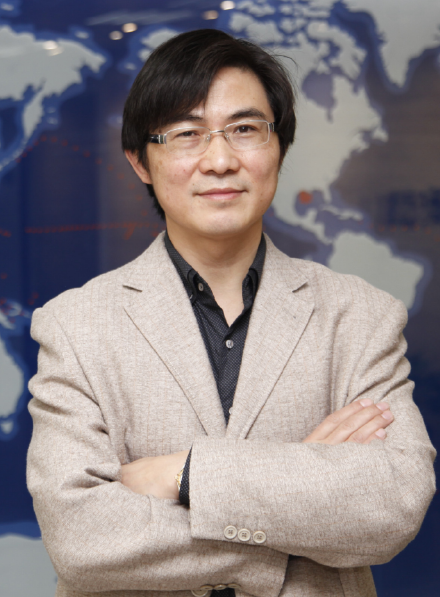
AOGS Axford Medal Award Recipient

2021-2022
2022 AOGS Axford Medallist
Professor Minhan DAI
Xiamen University
Minhan Dai is an internationally renowned marine biogeochemist devoted to interdisciplinary research on the ocean and its role in climate and environmental change. He has made outstanding contributions in ocean carbon and nutrient biogeochemistry research and demonstrated strong leadership in international cooperative research promoting ocean sustainability as well as in capacity building.
Minhan Dai is a leading scientist in international ocean carbon research. Since 2009, he has led two China Coastal Carbon Programs. Based on his work and collaborations with colleagues, the China Seas, including the South China Sea and East China Sea, are among the most studied coastal systems with regards to carbon fluxes and their physical and biogeochemical controls. He and his colleagues are among the first to report on CO2 fluxes in the coastal ocean at a global scale, and articulate a coastal carbon cycle framework in both coastal systems with large riverine inputs (River-Dominated Margins, RiOMar and those dominated by interactions with the open ocean (Ocean-Dominated Margins, OceMar), which furthers understanding of the coastal carbon cycle mechanism.
He has contributed significantly to elucidating the mechanistic interactions between coastal eutrophication, hypoxia and ocean acidification. He and his colleagues quantified for the first time the source partitioning of oxygen consuming organic matter between marine and terrestrial organic matter in coastal hypoxic zones, i.e. how eutrophication drives hypoxia.
Growing out of this science excellence, Dr. Dai’s national and international leadership has led to substantial contributions to the discipline of marine biogeochemistry in Asia. Since his return to China in 1998, he has led the development of the only State Key Laboratory of Marine Environmental Science to become an Asia-based world-class laboratory within the field. He was elected as an Academician of the Chinese Academy of Sciences for his fundamental contribution to the science of marine biogeochemistry. His outstanding international leadership is highly sought-after and he has contributed to many high-level committees for international science direction, trends, and coordination. He is a co-chair of the global and multidisciplinary research project “Surface Ocean - Lower Atmosphere Study (SOLAS)”, established to provide international science coordination and capacity building. He is a member of an international expert group on integrated ocean carbon research. He was co-chair of the programme committee for the OceanObs’19 Conference, a highly influential decadal planning of ocean observations. He recently led an international team of leading academic institutions, industrial enterprises, non-profit foundations, and non-governmental/intergovernmental organizations from East Asian countries to design a regional programme called COASTAL-SOS that integrates science, management and society, as an endorsed contribution to the United Nation’s Decade of Ocean Science for Sustainable Development Program (2021-2030). Delivery of the objectives will provide scientific understanding of critical coastal ocean health issues in Asian regions, to guide integrated ocean management strategies for best practices of sustainable development and deployment in ocean resources in an environment of intensifying human activities and a warming climate.
Among these international programs, Minhan Dai has unselfishly promoted sciences and capacity building for Asian countries and regions. He was the Secretary General of the Asia Oceania Geosciences Society (AOGS) from 2010-2012, the President of AOGS’s Ocean Section from 2009-2010, and Founding President of AOGS’s Biogeosciences Section from 2012-2014. He has advised students and sponsored postdocs from Thailand, India, Indonesia and Pakistan and has organized a number of training workshops and summer schools in Xiamen which helped foster exchange with scientists, early career researchers and students from under-developed countries.
